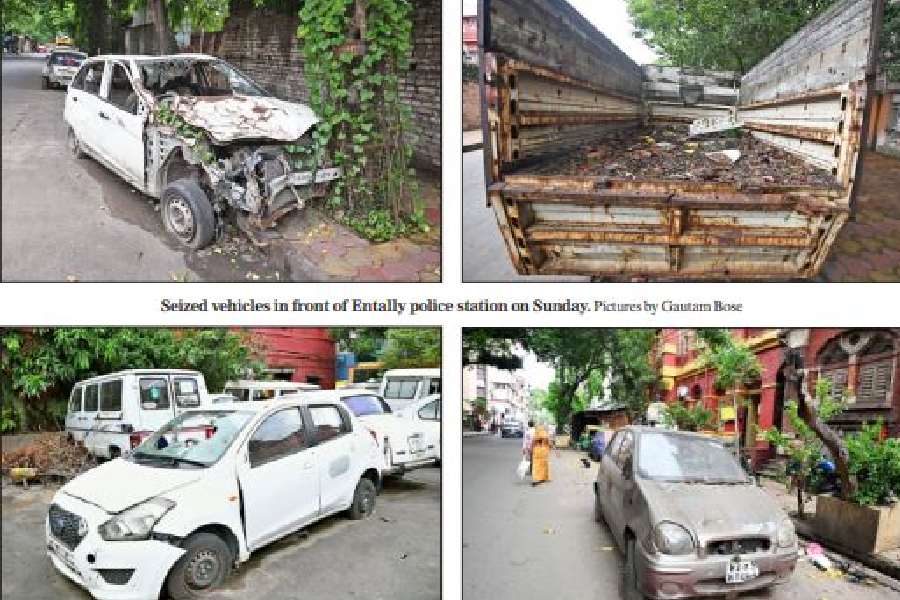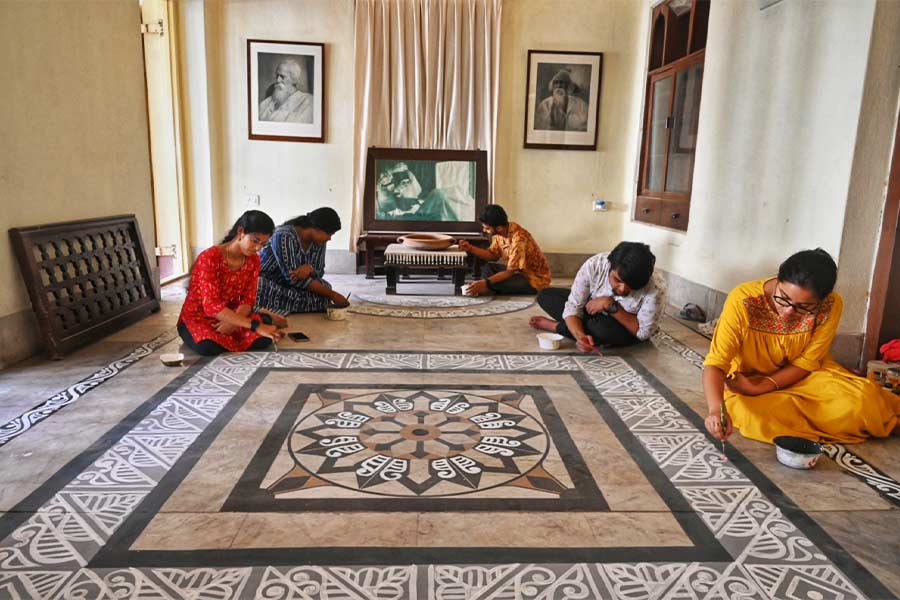Orders have gone from the Kolkata police headquarters to all police stations in the city to shift seized vehicles lying idle outside their premises for months, the move aimed at preventing a dengue outbreak as such vehicles turn into mosquito-breeding sites during the monsoon.
The police stations have also been told to ensure that water does not accumulate in any parts of their premises.
“We have asked all police stations to ensure that there is no stagnant water on the terrace or in the flower pots. The police stations have been asked to see that vehicles that have been lying outside their premises for months are sent to the designated places for such cars,” Santosh Pandey, joint commissioner of police, headquarters, told this newspaper on Saturday.
However, a day after the orders were issued, The Telegraph on Sunday found seized cars lying outside three police stations — Entally, Ballygunge and Jorabagan.
Cars outside Entally and Ballygunge had multiple dents, which can turn into mosquito-breeding sites during the monsoon as water accumulates in them.
Earlier this week, this newspaper also came across seized cars and two-wheelers outside Topsia and Bhowanipore police stations.
There are two large plots for keeping seized cars, one under Vidyasagar Setu and the other in Bantala, off Basanti Highway, said a police officer. There is also a smaller place for keeping seized cars — in Sick Lane in the West Port police station area.
Police sources said that since the plots are away from densely populated places, keeping the cars there would pose fewer risks to Kolkatans.
Police stations in the city, on the other hand, are located in the middle of densely populated neighbourhoods and any mosquito-breeding site on their premises puts all residents at risk.
Police officers said there is already a standing instruction to all police stations to not seize cars unless they are involved in fatal accidents.
“We have reduced seizing cars,” an officer said.
Mayor Firhad Hakim on Wednesday wrote to Kolkata’s police commissioner Vineet Goyal requesting him to “direct all the police stations to remove the condemned cars in a bid to control mosquito breeding”. This was the mayor’s second letter in seven months to the top cop with the same request.
An official of the Kolkata Municipal Corporation (KMC) said seized cars are a threat because they can turn into mosquito-breeding grounds. Such cars often have dents or depressions on their exterior, where water accumulates during the monsoon.
Eggs of the Aedes aegypti mosquito, the primary transmitter of the dengue virus, can turn into adults even if it gets a spoon of water that remains undisturbed for at least seven days.
An officer at Ballygunge police station said the cars outside the police station were seized by the transport department and the cops had nothing to do with them.
“We have asked the transport department to remove the cars,” said the police officer.
“We are not aware of this, but if there is any communication from the police, we will take necessary steps to mitigate the risks. We will work in coordination with the police,” said an official in the transport department.
“There are three or four cars outside our police station. We will remove them to plots meant for seized cars. Usually, we try to ensure that there are no seized cars outside our police station,” said an officer of Jorabagan police station.
“There are a few vehicles outside our police station. It will take seven to 10 days to remove them. We have started the process,” said an officer of Entally police station.
The World Health Organisation (WHO) has stressed source reduction to combat dengue. The WHO’s website says: “The best preventive measure for areas infested with Aedes mosquito is to eliminate the mosquitoes’ egg laying sites — called source reduction. Lowering the number of eggs, larvae and pupae will reduce the number of emerging adult mosquitoes and the transmission of the disease.”
But seized cars are not the only potential sources of mosquito breeding. This newspaper has found accumulated solid waste in many parts of the city, along roads and in vacant plots.
Solid waste contains cups and containers that can turn into egg-laying sites for mosquitoes if the water in them remains stagnant for atleast seven days, said an entomologist.






